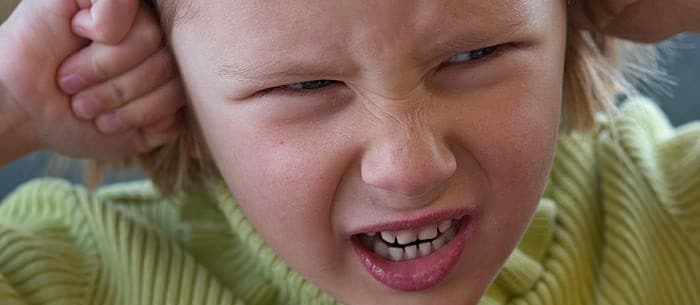Is your infant crying over minor things? Is your son acting out at school? With so much talk about behavior disorders, it’s normal to worry that every tantrum is a warning sign. The Centers for Disease Control and Prevention (CDC) says that only about 3.5 percent of children age 3 to 17 have a behavior disorder and 6.8 percent have ADHD. While you shouldn’t take those numbers lightly, it’s comforting to know that your child’s behavior is probably just a phase.
But what if there is an underlying problem? How can you tell if the behavior is a temporary thing or something you need to seek help for? Renelle Nelson, who has coordinated the Children’s Mental Health and Emotional or Behavioral Disorders Project at PACER Center for 14 years, has some advice to help parents determine if their child has behavioral issues.
- Infants, Toddlers and Preschoolers
Is your child missing his milestones? Is he rigid when you try to hold him? Does he avoid eye contact and rarely smile? These may be signs of attachment problems, which can be indicative of later behavioral issues. While they’re not sure signs of a problem with your newborn to 3-year-old, you should seek help to rule it out. Check out HealthyChildren.org by the American Academy of Pediatrics for milestones and age-appropriate behaviors.According to the PACER Center, signs of a behavior disorder in 3- to 5-year-olds can include having trouble interacting with other children, excessive hyperactivity, excessive fears (being suddenly fearful of multiple things or exhibiting an extreme deviation from prior fears), a strong reaction to a change in routine, or being intentionally harmful to himself, others or animals. Of course, these signs are not absolute indicators of a serious problem, but they can help alert you to things to watch for. If you feel that something is “off” at any age, don’t be afraid to seek advice. Nelson says, “Parents know their children best, and they shouldn’t be reluctant to act on their instincts.” She suggests documenting the behaviors you’re concerned about and calling your pediatrician to discuss them. PACER has free checklists available so you or your nanny can write down important information for behavioral screening. They cover birth to 1 year, 1 year to 3 years and 3 years to 5 years.
“It may also be helpful to schedule a developmental screening with your pediatrician, who will help you decide if a more comprehensive evaluation with a specialist is needed,” Nelson says. In most cases, if there is a behavior issue that requires attention, your child’s doctor will work with your local school district or social services department to use testing and intervention programs to prepare your child for school. The government-funded ECTA center lists who to contact in your state for help with children of all ages.
- Older Children
With children above 5 years old, reaching milestones is still important, but it’s also easier to notice behavioral changes that may indicate a problem. “If the child’s behavior significantly interferes with how the child functions — like a sudden lack of interest in school, or student-teacher relationships or friendships change for the worse — then this could be a behavior disorder,” says Dr. Adiaha Spinks-Franklin, a developmental-behavioral pediatrician at Texas Children’s Hospital. She says changes to sleeping and feeding routines, as well as altered family interactions could also be signs of behavior disorders. Nelson adds, “If the challenging behavior is mostly at school, parents should meet with the child’s teacher to discuss their concerns and talk about next steps.” Just as with a younger child, alerting his doctor and keeping detailed behavioral notes are crucial.Have an inkling his behavior isn’t a disorder? Dr. Spinks-Franklin explains, “‘Disorder’ by definition means that a behavior or condition impairs normal functioning. If the child’s behavior does not interfere with normal functioning, then the behavior could be a way of the child expressing frustration or a means of manipulating a situation to get his or her own way. It is important for a parent to work with a professional to tease out the difference.” If your child is acting out or going through a phase, he still needs support and the knowledge that you love him, no matter what, and that you’re there for him.
Nelson says, “The most important thing is to take action, both for the well-being of your son or daughter and for your own peace of mind. Early detection and intervention is crucial in helping children overcome behavioral challenges and reach their full potential.” If you have any concerns about your child’s behavior, seek out a professional opinion right away.
Margie Mars is a happily married mother of eight and shockingly young oma of three. Three of her children are on the autism spectrum and her youngest child has ADHD. She writes about parenting topics for several popular websites. Margie lives with her family in Oregon. You can follow Margie on Facebook.






